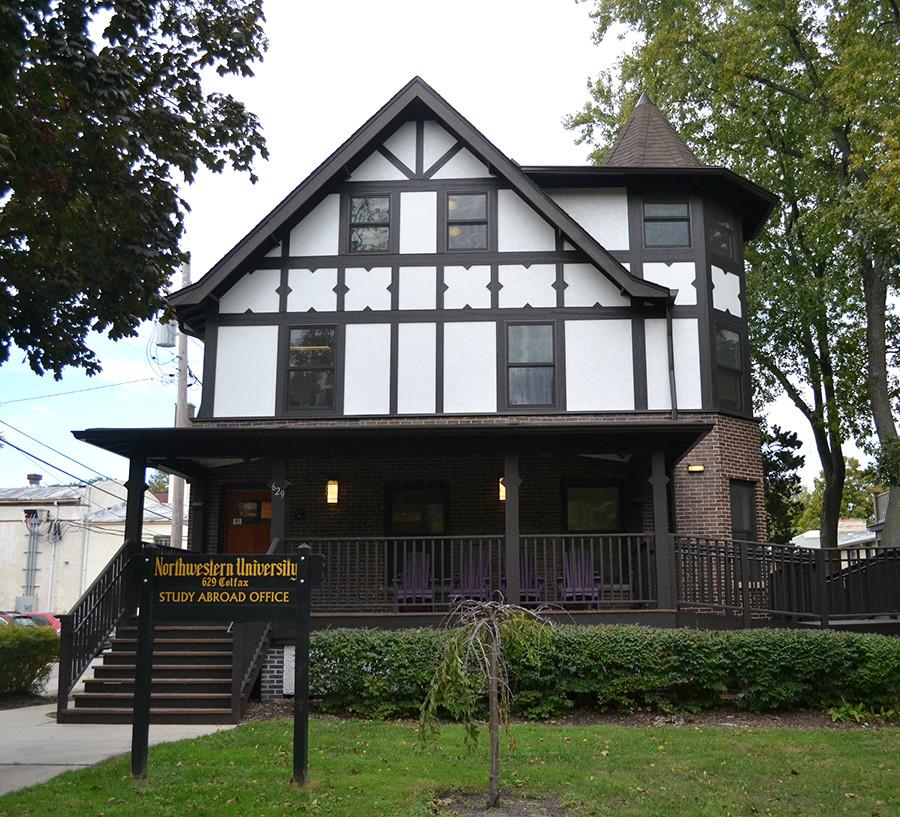NU to add official study abroad programming in Taiwan next fall
Josh Kaplan/The Daily Northwestern
Northwestern study abroad programming will expand to Taiwan in Fall 2016, with three affiliated programs eligible for financial aid. A faculty-led committee approved affiliations with two Taiwanese universities on Oct. 5.
October 14, 2015
For the first time, Northwestern study abroad locations will expand to Taiwan, with three affiliated programs eligible for financial aid debuting in Fall 2016.
The faculty-led study abroad committee approved affiliations with two Taiwanese universities on Oct. 5 after about two years of planning by the Study Abroad Office, the Asian Studies program and the Department of Asian Languages and Culture. Previously, students studying abroad in Taiwan only attended unaffiliated programs, which are not eligible for financial aid.
Paola Zamperini, DALC chair, said students learning Chinese should explore Taiwan to fully understand the Chinese language and culture.
“I felt very strongly that our majors and minors should have the possibility to study abroad in both mainland China and Taiwan,” she said. “It’s impossible to know what the adjective ‘Chinese’ means, including language and culture, without going to Taiwan.”
While the two countries use the same spoken language, Taiwan generally uses traditional characters in writing, as does Hong Kong. China, Malaysia and Singapore generally use simplified characters. NU students in Chinese language classes have the option of studying either set of characters.
Alicia Stanley, the associate director of the Study Abroad Office and adviser for its programs in Asia, said the office saw a gap in their program options after a few students expressed interest in Taiwan but ended up attending unaffiliated programs. NU financial aid policy states that students attending unaffiliated programs are not eligible for any kind of type of financial assistance. Students will now be able to use their financial aid awards in Taiwan.
The three programs provide options for Chinese learners of all levels to experience one semester or a full academic year in Taipei, the nation’s capital. The International Chinese Language Program, hosted by National Taiwan University, provides a full academic year of intensive language training to serious students with at least an intermediate Chinese proficiency.
The two other programs, hosted by National Chengchi University through the Council of International Educational Exchange, offer language training and content courses in business, communications and political economy to students with varying levels of Chinese proficiency.
In the 2014-15 academic year, China was the fourth most popular country chosen by NU study abroad students. Students currently have the option of attending affiliated programs in Beijing, Nanjing, Hangzhou and Hong Kong.
Conducting a thorough review of the programs, Zamperini and Stanley visited Taiwan in April this year. After speaking with faculty and staff, sitting in on classes, visiting housing options and learning about student services, they returned with high recommendations for all three programs.
“We were thrilled to propose them to the faculty-led study abroad committee,” Stanley said. “Our next step is to formalize our agreements with CIEE and ICLP. They are eager to have Northwestern students who are so brilliant and hardworking.”
Alumna Kayleigh Madjar (Weinberg ’14), who studied abroad in both China and Taiwan as an undergraduate, moved to Taiwan after graduation to pursue a graduate degree at National Taiwan University of Arts.
She encourages students to view Taiwan as a viable option for learning Chinese.
“I did wish that they had affiliated programs, something like ICLP, because I would have enjoyed that,” Madjar said. “It’s good to have more options, but more than that, Taiwan is a wonderful place. Everything you would want in a country is here in microcosm. There are gorgeous mountains and beaches within a half hour away, all the draws of an internationally acclaimed city, and intensely friendly people who would be thrilled to practice Mandarin with you.”
Applications for Fall Quarter 2016 and the 2016-17 academic year programs are due Feb. 10, 2016.
Email: [email protected]


